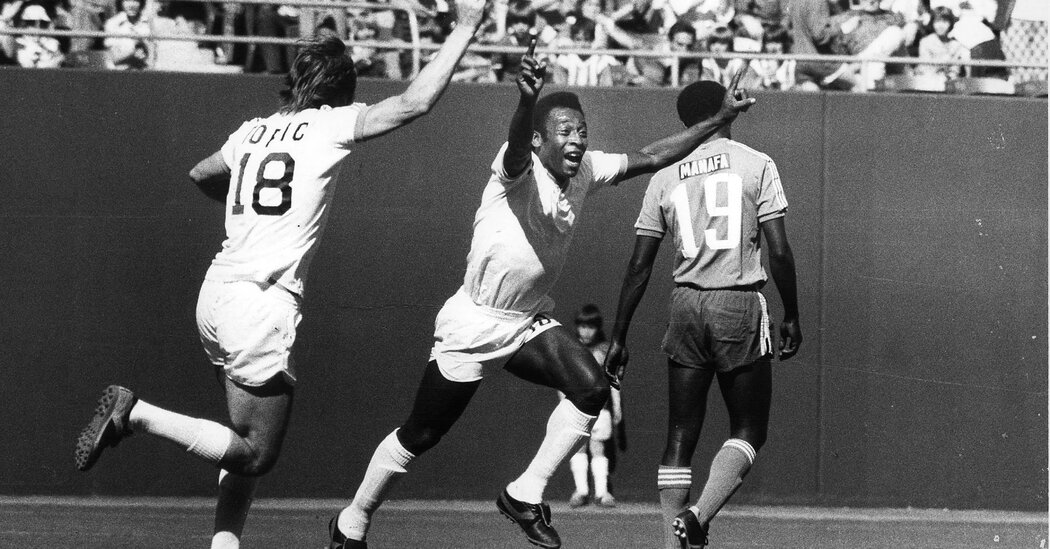
In that pre-internet age, dozens of newspapers, TV and radio stations, magazines, and news agencies sent reporters to see Pelé, and the Cosmos, filling press boxes and changing rooms with a vibrant mix of Spanish, Portuguese, Italian, German, Greek, Turkish, French and assorted varieties of English.
The locker room scene was new for Pelé. Before joining the Cosmos, he had answered reporters’ questions either in postgame news conferences or scheduled interviews. The rest of the soccer world did not — and still does not — follow the American custom of admitting reporters into the locker room immediately after games to get players’ reactions.
But selling soccer in America required accommodations, and Pelé — the sport’s champion — took it all in stride. Serene as ever, he would sit in his locker stall, a hefty white towel around his waist, his gnarled and battered-looking feet wedged into shower shoes, answering in genial but broken English.
Pelé always struggled with English. He tried, but it didn’t come easily. Quickly he learned to greet people he recognized as “my friend,” sometimes because he had forgotten the name, sometimes just to express kindness.
When he had harsher feelings to express, his limited English often helped. To criticize the team’s tactics, lineup or other coaching decisions, he could vent privately to his longtime friend and interpreter Julio Mazzei, known as Professor Mazzei, who spoke fluent English. (The Cosmos eventually made Mazzei the team’s head coach.) And on the practice field, Pelé would yell, “Look! Look!” to point out a poorly placed pass, or, “Work! Work!” when he felt teammates weren’t giving enough effort.